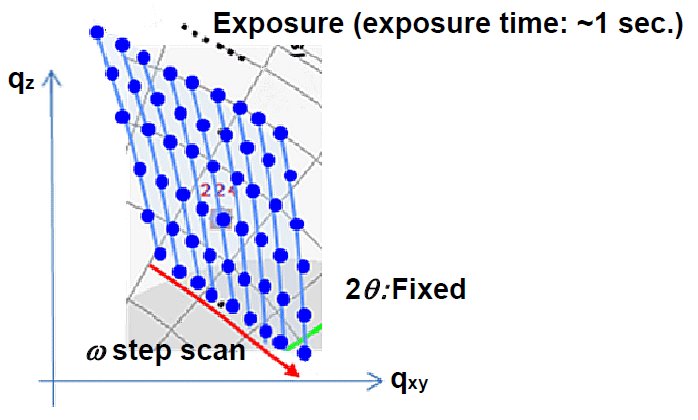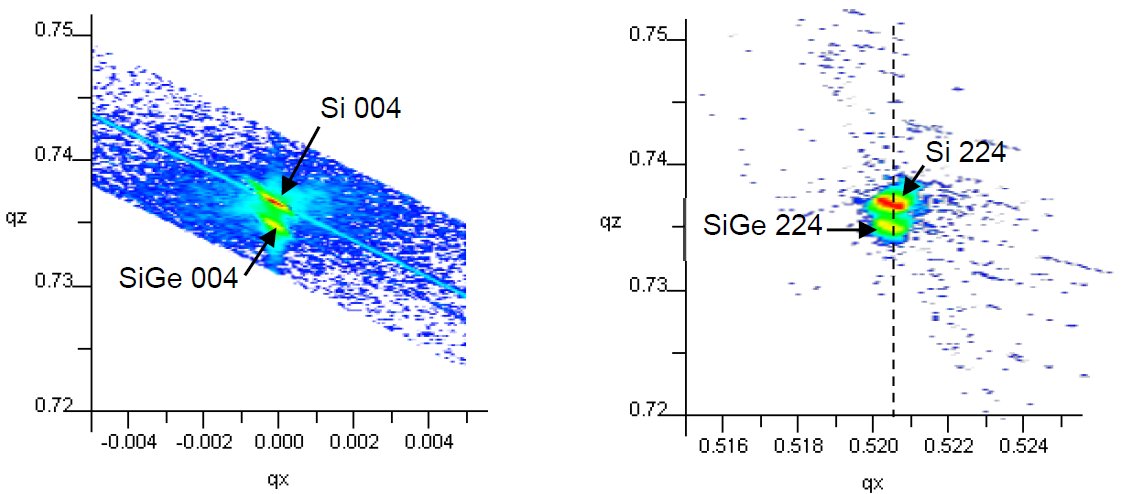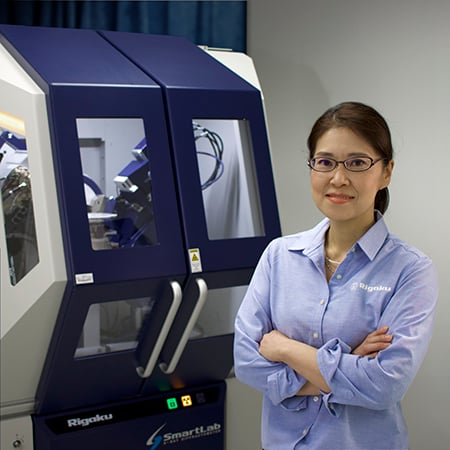Application Note B-XRD2021
Introduction
Transistors using silicon germanium (SiGe) have low power consumption and operate at high speed. The device performance is affected by the Ge concentration, lattice strain (relaxation), and the crystal quality of the SiGe layer. Reciprocal space mapping using a one-dimensional (1D) detector efficiently revealed these characteristics in short timeframes. This example demonstrates how this can be achieved in around 10 minutes.
Measurements and results
Since a 1D detector has a large number of detection elements in the 2θ direction, and it has angle information for each element, it is possible to measure 2θ profile without scanning. This measurement mode is called “Still mode". High-speed reciprocal space mapping can be completed in approximately 10 minutes by repeating exposures with ω step scan and fixed 2θ (Figure 1).

Figure 1: Schematic diagram of high-speed reciprocal space mapping using a 1D detector in Still mode.
Figure 2 shows the high-speed reciprocal space map of a Si₀.₉₇Ge₀.₀₃ epitaxial film (film thickness 380 nm) on Si 100 substrate. It was confirmed the SiGe film grows without inclination of the lattice on the Si substrate because the values of qx (Å⁻¹) of Si 004 and SiGe 004 were equal. Furthermore, since the values of qx (Å⁻¹) of Si 224 and SiGe 224 are equal, the lattice constants in the in-plane direction of Si and SiGe are identical. Thus, we found that epitaxial lattice of SiGe grew on the Si substrate without mismatch; i.e., 0% relaxation rate.

Figure 2: The reciprocal space map using one-dimensional detector (Measurement time: approx. 10 min.) Left: Si, SiGe 004 reflection, right: Si, SiGe 224 reflection.

